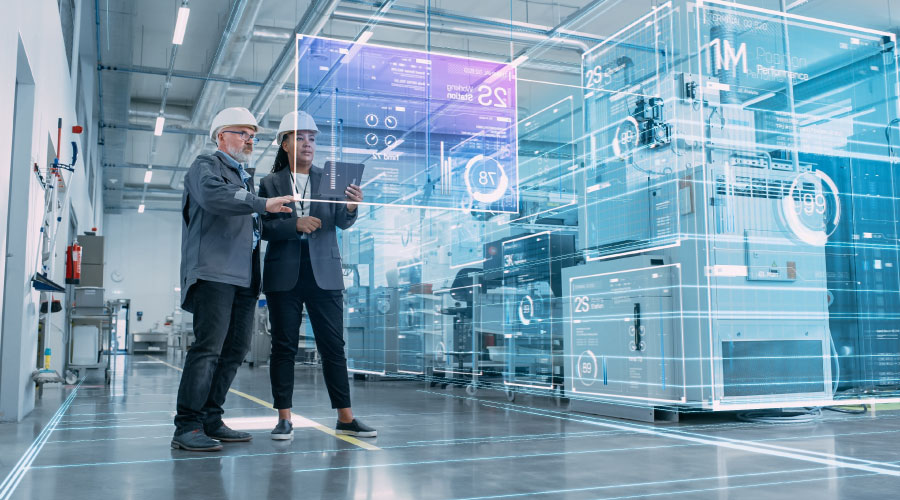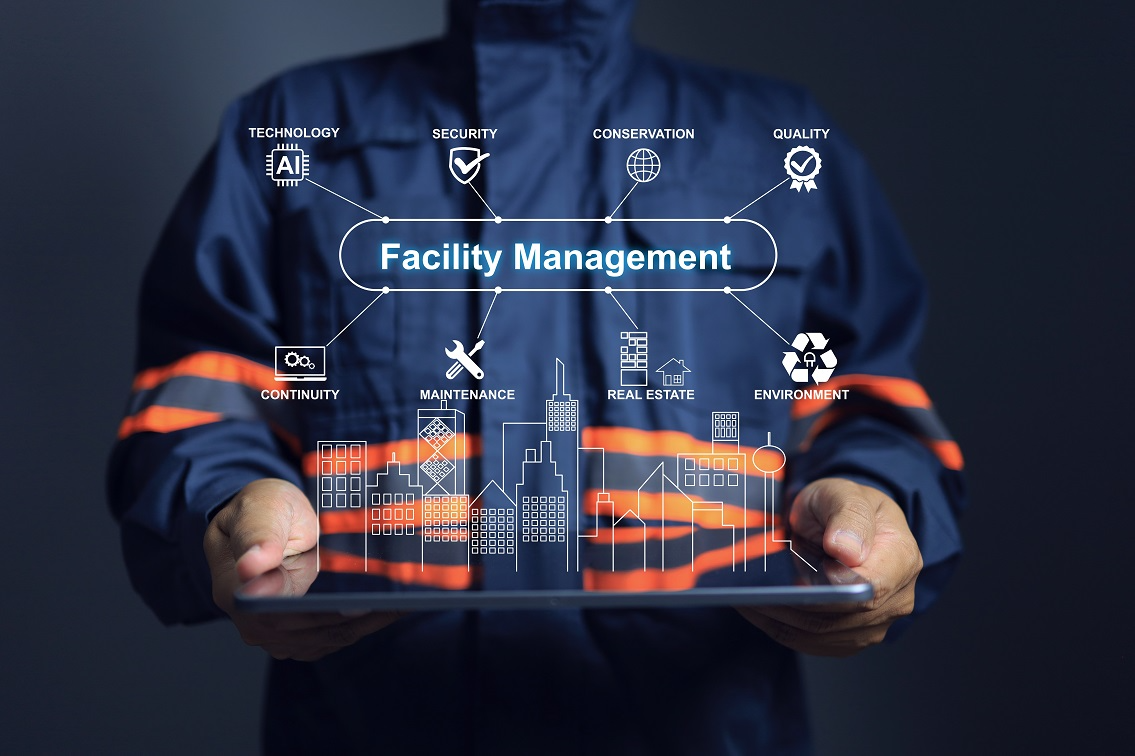How Facility Management Enhances Workplace Productivity
Wiki Article
Secret Fads Forming the Future of Facility Management in 2024
As we look in advance to 2024, the landscape of center management is poised for considerable makeover, driven by several essential patterns. The integration of smart building innovations and a change towards data-driven decision-making guarantee to improve functional effectiveness while focusing on sustainability in practice. The emergence of hybrid work versions is reshaping office environments, necessitating innovative design solutions that cater to developing employee needs. In the middle of these adjustments, the concentrate on owner wellness proceeds to gain traction, emphasizing the relevance of a healthy work environment. Just how these trends will certainly show up in method stays a critical inquiry for sector experts.Smart Building Technologies

Smart structure technologies include a vast array of systems, including intelligent lighting, cooling and heating controls, and safety and security systems. By integrating these systems, facility managers can keep track of and change parameters in real-time, resulting in considerable reductions in power waste and functional prices. For example, clever sensing units can identify tenancy levels and change lights and temperature level appropriately, making certain that power is just utilized when needed.
Additionally, these innovations facilitate improved data collection, enabling companies to track usage patterns and recognize possibilities for more enhancements. The application of wise structure innovations not just adds to sustainability goals but additionally produces healthier job settings that can increase employee efficiency and fulfillment.
As we move right into 2024, the adoption of wise building innovations will likely speed up, mirroring a wider change in the direction of more smart, receptive, and lasting facility management practices.
Data-Driven Decision Making
Significantly, organizations are leveraging data-driven decision making to improve facility management methods. By utilizing data analytics, center supervisors can obtain workable understandings that substantially improve functional effectiveness and source allowance. The integration of advanced innovations, such as IoT sensors and real-time surveillance systems, enables the collection of large quantities of data on building performance, tenancy prices, and energy usage.This riches of information permits facility supervisors to identify fads, forecast maintenance demands, and proactively address concerns prior to they intensify. Anticipating analytics can anticipate devices failures, decreasing downtime and repair expenses. Furthermore, information visualization tools assist in far better communication amongst stakeholders, making sure that notified decisions are made collaboratively.
Additionally, data-driven approaches enhance tactical planning by enabling facility managers to analyze the performance of existing techniques and make educated selections regarding investments in innovation or facilities. As organizations progressively prioritize operational excellence, data-driven decision making is positioned to come to be a foundation of effective facility administration techniques in 2024 and beyond. Ultimately, the ability to utilize data efficiently will empower companies to develop a lot more effective, efficient, and durable facilities.
Sustainability and Eco-friendly Practices
The emphasis on data-driven decision making naturally straightens with the growing emphasis on sustainability and environment-friendly methods within facility administration. As organizations significantly focus on environmental duty, facility managers are leveraging analytics to maximize resource usage, minimize waste, and reduce carbon impacts. This critical technique enables the assimilation of energy-efficient systems, such as LED illumination, smart HVAC controls, and renewable resource sources right into facility procedures.Additionally, the implementation of lasting practices expands beyond power consumption. Facility managers are embracing green materials and advertising reusing initiatives to produce a round economic climate within their centers. This not only enhances the ecological profile of the company however also promotes a society of sustainability among staff members.
Compliance with environmental regulations is an additional vital facet driving the adoption of eco-friendly techniques. By utilizing information analytics, center supervisors can keep track of conformity metrics and recognize locations for improvement, making certain adherence to local and worldwide sustainability standards.
Hybrid Work Designs
A significant change towards hybrid work versions is reshaping the landscape of facility management in 2024. This paradigm incorporates remote and in-office work, requiring a reevaluation of room use, source appropriation, and employee engagement techniques. Organizations are increasingly identifying the importance of flexible workspaces that accommodate diverse needs and preferences.Facility supervisors must adjust by executing flexible office styles that sustain collaborative initiatives while providing areas for concentrated work. This consists of the assimilation of innovation to promote seamless communication and cooperation among remote and in-office staff members. Smart building services, geared up with sensors and analytics, enable for real-time surveillance of space usage, making it possible for organizations to maximize their atmospheres efficiently.
Furthermore, hybrid job models highlight the requirement for effective facility monitoring that prioritizes worker experience. In significance, the crossbreed work design is transforming facility management, urging an aggressive technique to satisfy the developing needs of the labor force.
Enhanced Owner Wellness
As companies accept hybrid work models, an enhanced emphasis on resident wellness is becoming integral to facility management methods. Facility Management. This change recognizes that a healthy and satisfied workforce straight impacts performance and retention prices. Facility supervisors are currently prioritizing environments that advertise mental and physical wellness, incorporating aspects such as natural lights, biophilic design, and accessible wellness sources

Technology plays a vital duty in this advancement. Smart structure systems can check ecological variables and readjust setups in real-time, making certain optimal comfort levels - Facility Management. Additionally, feedback mechanisms, such as tenancy sensing units and employee studies, permit center managers to constantly refine wellness campaigns based upon passenger requirements.

Conclusion
In 2024, the future of center management will be significantly affected by the integration of wise structure technologies and data-driven decision-making, promoting boosted operational efficiency. Sustainability initiatives will certainly prioritize environment-friendly techniques, while view it now the emergence of hybrid work versions will certainly necessitate versatile workplace layouts. A heightened focus on occupant health through innovative HVAC systems and biophilic style will add to healthier work atmospheres. These patterns jointly highlight the progressing landscape of center monitoring in feedback to contemporary difficulties and chances.Facility managers are taking on environmentally friendly materials and advertising recycling initiatives to develop a circular economic climate within their facilities.A substantial change towards hybrid job designs is reshaping the landscape of center administration in discover this info here 2024.Furthermore, crossbreed job designs emphasize the requirement for effective center administration that prioritizes staff member experience.As companies embrace hybrid job designs, an enhanced focus on occupant health is becoming indispensable to facility monitoring methods.In 2024, the future of center administration will certainly be substantially influenced by the assimilation of wise structure innovations and data-driven decision-making, cultivating enhanced functional efficiency.
Report this wiki page